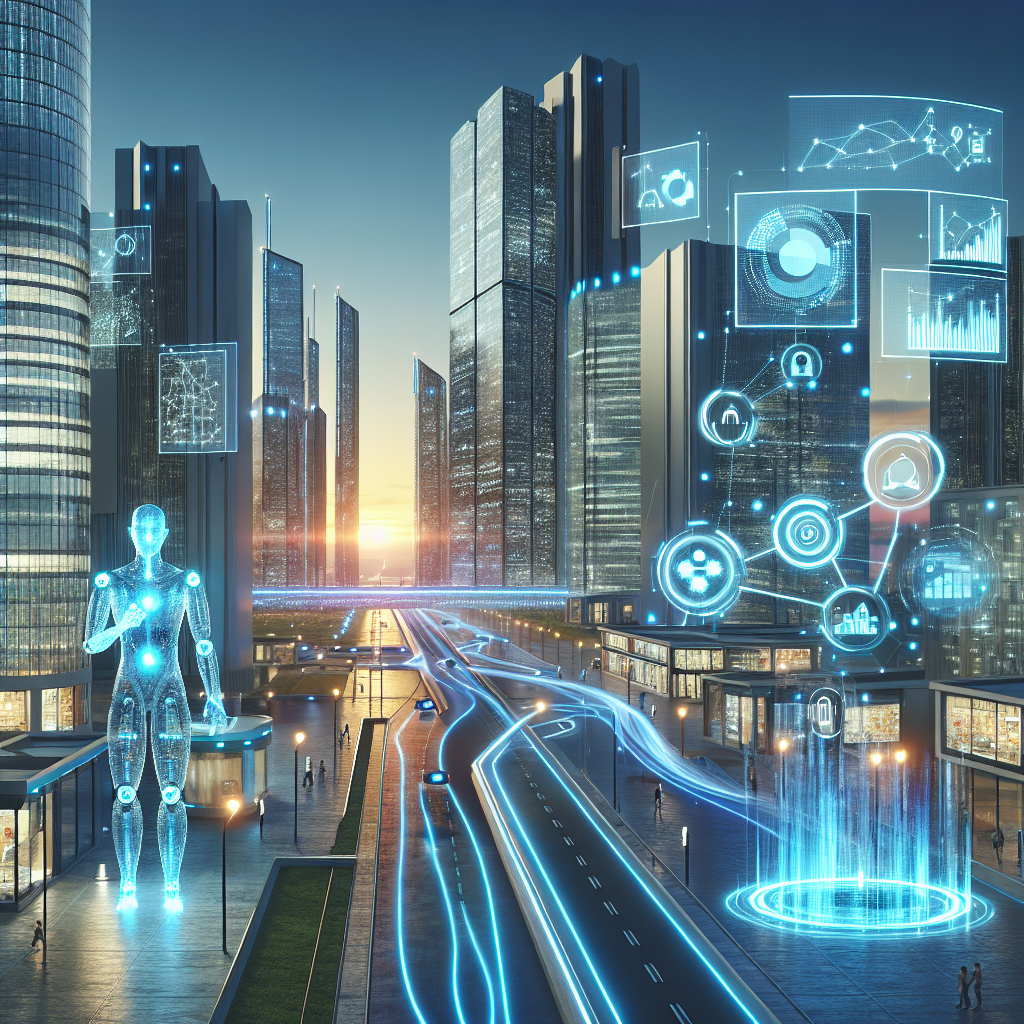In recent years, the concept of smart cities has gained traction as urban areas around the world look for ways to improve efficiency, sustainability, and quality of life for their residents. Big data and artificial intelligence (AI) have emerged as key technologies driving the development of smart cities, enabling cities to collect and analyze vast amounts of data to make more informed decisions and provide better services to their citizens.
What is Big Data?
Big data refers to the large volume of data that is generated by various sources such as sensors, social media, mobile devices, and other digital platforms. This data is typically characterized by its volume, velocity, variety, and veracity, making it difficult to process and analyze using traditional data processing tools.
In the context of smart cities, big data plays a crucial role in providing insights into various aspects of urban life, such as traffic patterns, air quality, energy consumption, and public safety. By collecting and analyzing this data, cities can identify trends, make predictions, and optimize their resources to better meet the needs of their residents.
How is Big Data used in Smart Cities?
Big data is used in a variety of ways in smart cities to improve efficiency, sustainability, and quality of life for residents. Some common applications of big data in smart cities include:
1. Traffic management: Big data analytics can be used to monitor traffic patterns, identify congestion hotspots, and optimize traffic flow in real-time. This helps reduce travel times, improve air quality, and enhance overall transportation efficiency in urban areas.
2. Energy management: Big data analytics can help cities monitor and optimize energy consumption in buildings, streetlights, and other public infrastructure. By analyzing energy usage patterns, cities can identify opportunities to reduce costs, increase efficiency, and promote sustainability.
3. Public safety: Big data can be used to analyze crime data, predict crime hotspots, and optimize police patrols to prevent criminal activity. This helps improve public safety and reduce crime rates in urban areas.
4. Waste management: Big data analytics can help cities optimize waste collection routes, reduce landfill usage, and promote recycling and composting. By analyzing waste generation patterns, cities can improve waste management practices and reduce environmental impact.
5. Urban planning: Big data can be used to analyze demographic trends, land use patterns, and infrastructure needs to inform urban planning decisions. By collecting and analyzing data on population growth, transportation demand, and housing affordability, cities can make more informed decisions about future development projects.
How does AI fit into the picture?
Artificial intelligence (AI) is another key technology that is transforming the way cities operate and provide services to their residents. AI refers to the ability of machines to perform tasks that typically require human intelligence, such as learning, reasoning, and problem-solving.
In the context of smart cities, AI is used to process and analyze big data to derive insights, automate decision-making processes, and improve the efficiency of city services. Some common applications of AI in smart cities include:
1. Predictive analytics: AI algorithms can analyze big data to predict future events, such as traffic accidents, air quality fluctuations, or energy consumption spikes. By providing early warnings and insights, AI can help cities take proactive measures to prevent or mitigate potential problems.
2. Autonomous systems: AI-powered autonomous systems, such as self-driving cars, drones, and robots, are being used in smart cities to perform tasks more efficiently and safely. These systems can help reduce traffic congestion, improve public safety, and enhance the overall quality of life for residents.
3. Smart infrastructure: AI can be used to optimize the operation of smart infrastructure, such as energy grids, water systems, and public transportation networks. By analyzing real-time data and adjusting operations in response to changing conditions, AI can help cities reduce costs, improve reliability, and promote sustainability.
4. Personalized services: AI can be used to personalize city services and communication channels for residents. By analyzing individual preferences, behavior patterns, and feedback, AI can tailor services, such as public transportation routes, emergency alerts, or event recommendations, to meet the specific needs of each resident.
FAQs about Big Data and AI in Smart Cities:
Q: How can big data and AI improve public transportation in smart cities?
A: Big data and AI can be used to optimize public transportation routes, predict demand, and improve service reliability. By analyzing data on passenger flows, traffic patterns, and weather conditions, cities can adjust schedules, allocate resources, and provide real-time updates to passengers to enhance their overall transportation experience.
Q: What are the privacy concerns associated with big data and AI in smart cities?
A: Privacy concerns are a major consideration when collecting and analyzing big data in smart cities. Cities must ensure that data is collected and stored securely, anonymized to protect individual identities, and used in compliance with privacy regulations. Transparent data governance policies and mechanisms for obtaining consent from residents are essential to build trust and protect privacy in smart city initiatives.
Q: How can small cities benefit from big data and AI technologies?
A: Small cities can benefit from big data and AI technologies by leveraging cloud-based platforms, open data initiatives, and collaboration with technology partners. By pooling resources, sharing data, and adopting scalable solutions, small cities can improve service delivery, enhance sustainability, and promote economic development in a cost-effective manner.
In conclusion, big data and AI are transforming the way cities operate and provide services to their residents. By collecting, analyzing, and leveraging data to make informed decisions and automate processes, smart cities can improve efficiency, sustainability, and quality of life for their citizens. As cities continue to evolve and embrace digital technologies, the role of big data and AI in shaping the future of urban living will only continue to grow.

